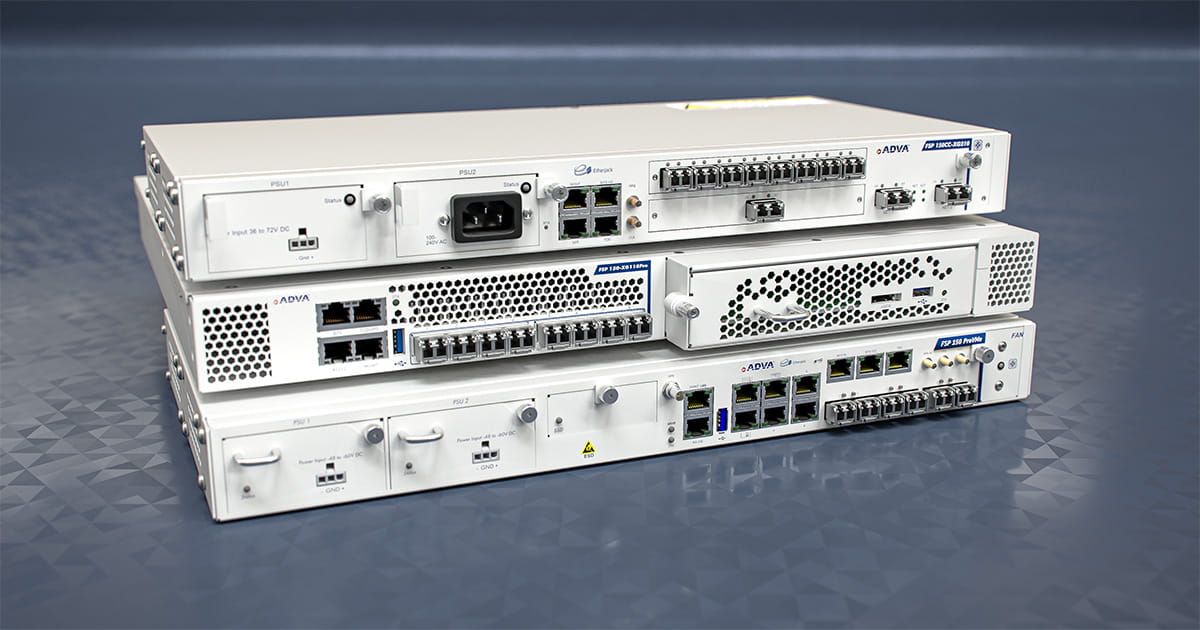12 May 2020
ADVA (FSE: ADV) today announced that it is playing a key role in a unique research initiative extending post-quantum security to VPN networks. Leveraging the ADVA FSP 150 with ConnectGuard™ Ethernet encryption, the Quantum-Secure VPN Modules and Operation Modes (QuaSiModO) project is testing new quantum-resistant algorithms in the packet domain. It will develop viable security solutions that can protect Layer 2 and 3 data against all forms of cyberattack, including those from quantum computers. By participating in the initiative, ADVA is extending its industry-leading work with quantum-safe cryptography in optical transport to higher network layers. Other QuaSiModO project partners are the Fraunhofer Institute of Applied and Integrated Security, the Ludwig Maximilian University of Munich and genua GmbH.

ADVA’s Ethernet encryption technology is bringing post-quantum security to VPN networks
“As part of the QuaSiModO project, we’re continuing to drive innovation in future-proof cryptography. This initiative extends comprehensive post-quantum security to VPNs and enables businesses and government institutions to protect their data from tomorrow’s attacks,” said Jörg-Peter Elbers, SVP, advanced technology, ADVA. “Together with our partners, we’re ensuring that network security technology doesn’t fall behind in the computing power race. Our role in the project combines our experience with transport layer post-quantum security and our proven expertise when it comes to encrypting Carrier Ethernet connectivity. We’re helping to create a solution able to protect packet services today and ready to be upgraded later to comply with emerging specifications from standards bodies such as the USA’s National Institute of Standards and Technology.”
This initiative extends comprehensive post-quantum security to VPNs and enables businesses and government institutions to protect their data from tomorrow’s attacks.
Quantum computers of sufficient size and reliability could arrive within the next 10 to 15 years. This may mean that today’s widely applied data protection technologies will no longer be sufficient. What’s more, sensitive and valuable information may be at risk right now from harvesting attacks, with attackers storing information today to decrypt it as soon as large quantum computers are available. Funded by the German Federal Ministry of Education and Research, the QuaSiModO project is researching, testing and helping to standardize quantum-resistant algorithms in VPN implementations. It aims to extend existing IPSec and MACsec communication protocols with quantum-resistant procedures and support the development of complete solutions. The initiative is utilizing ADVA FSP 150 edge devices with ConnectGuard™ Ethernet encryption technology based on an enhanced version of MACsec. The solution provides high throughput and low-latency performance as it encrypts across multiple domains and service provider networks.
“When quantum computers emerge, they’ll be able to quickly crack complex problems that would take today’s most powerful supercomputers many years to solve. That’s why enterprises, governments and communication service providers are looking to leverage security technology built on quantum-safe algorithms,” commented Alexander von Gernler, head of research, genua GmbH. “For a decade, we’ve been focused on the threat posed by large quantum computers, and much of our work in recent years has been about developing practical quantum-resistant signatures and key establishment protocols. Now, we’re leading the QuaSiModO consortium, working with ADVA and the other partners to bring post-quantum security to network Layers 2 and 3, and deliver the robust future-proof protection that classical encryption technologies simply can’t.”
PR Archives: Latest, By Company, By Date